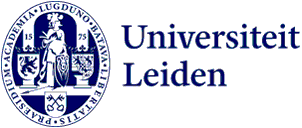39 search results for “metabolic nanoparticles” in the Staff website
-
 Marko Radojkovic
Marko RadojkovicFaculty of Science
m.radojkovic@biology.leidenuniv.nl | 071 5274960
-
 Alexa Schrickel
Alexa SchrickelSocial & Behavioural Sciences
a.schrickel@fsw.leidenuniv.nl | 071 5272727
-
 Camille Souama
Camille SouamaFaculty of Social and Behavioural Sciences
c.p.souama@fsw.leidenuniv.nl | 071 5272727
-
 Lennart Schada von Borzyskowski
Lennart Schada von BorzyskowskiFaculty of Science
l.schada.von.borzyskowski@biology.leidenuniv.nl | 071 5274278
-
 Hans Aerts
Hans AertsFaculty of Science
j.m.f.g.aerts@lic.leidenuniv.nl | 071 5274771
-
 Dongdong Bi
Dongdong BiFaculty of Science
d.bi@lacdr.leidenuniv.nl | 071 5274245
-
 Eline Dekeyster
Eline DekeysterFaculty of Social and Behavioural Sciences
e.a.g.dekeyster@fsw.leidenuniv.nl | 071 5272727
-
 Rik Mom
Rik MomFaculty of Science
r.v.mom@lic.leidenuniv.nl | 071 5274221
-
 Aleksandrina Skvortsova
Aleksandrina SkvortsovaFaculty of Social and Behavioural Sciences
a.skvortsova@fsw.leidenuniv.nl | 071 5272727
-
What makes us ill?
Genes predict whether you have a propensity for an illness but environmental factors often have the last word: nutrition, air pollution, lifestyle, stress. The exposome as both culprit and chance. Large-scale research is being carried out into this at Leiden. Thomas Hankemeier, Professor of Analytical…
-
 Sandra Irmisch
Sandra IrmischFaculty of Science
s.irmisch@biology.leidenuniv.nl | 071 5272727
-
 Miranda van Eck
Miranda van EckFaculty of Science
eck_m@lacdr.leidenuniv.nl | 071 5276238
-
 Laura de Jong
Laura de JongFaculty of Science
l.m.de.jong@lacdr.leidenuniv.nl | 071 5272727
-
Leiden biologists find nanoplastics in developing heart
Nanoplastics can accumulate in developing hearts, according to a study by biologist Meiru Wang from Leiden University. Her research on chicken embryos sheds new light on how these tiny plastic particles pose a threat to our health.
-
 Irene Groot
Irene GrootFaculty of Science
i.m.n.groot@lic.leidenuniv.nl | 071 5277361
-
 Robert Verpoorte
Robert VerpoorteFaculty of Science
verpoort@chem.leidenuniv.nl | 071 5274528
-
 Tomer Fishman
Tomer FishmanFaculty of Science
t.fishman@cml.leidenuniv.nl | 071 5272727
-
 Shiza Aslam
Shiza AslamFaculty of Science
s.aslam@cml.leidenuniv.nl | 071 5272727
-
 Chao Du
Chao DuFaculty of Science
c.du@biology.leidenuniv.nl | 071 5274947
-
 Peter van Santbrink
Peter van SantbrinkFaculty of Science
santbrin@lacdr.leidenuniv.nl | 071 5276076
-
 Marc Koper
Marc KoperFaculty of Science
m.koper@lic.leidenuniv.nl | 071 5274250
-
 Jeroen Bussmann
Jeroen BussmannFaculty of Science
j.bussmann@lacdr.leidenuniv.nl | 071 5274219
-
 Mikolaj Szachniewicz
Mikolaj SzachniewiczFaculty of Science
m.m.szachniewicz@lacdr.leidenuniv.nl | 071 5274235
-
New easy-to-use tuberculosis vaccine patch in development
Researchers from Leiden have developed a promising TB vaccine that users can self-administer via a special patch. This could be beneficial for countries with limited health services, says PhD candidate Malene Neustrup.
-
Better understanding cancer drugs – Leiden spin-off Omivera receives seed investment
How do you know if a drug will actually work? The Leiden-based spin-off Omivera is developing a new technology that could provide clearer answers. The young company received a seed investment from the investment fund UNIIQ to support its development.
-
 Lars Jeuken
Lars JeukenFaculty of Science
l.j.c.jeuken@lic.leidenuniv.nl | 071 5274755
-
 Irene Pascual Garcia
Irene Pascual GarciaFaculty of Science
i.pascual.garcia@biology.leidenuniv.nl | 071 5272727
-
Four Leiden professors elected members of the KHMW
The Royal Holland Society of Sciences and Humanities (KHMW) has appointed four Leiden professors as members. Petra Sijpesteijn, Vanessa Mak, Mariska Kret and Miranda van Eck have recently joined the KHMW.
-
‘Sleep should play a greater role in lifestyle research’
Sleep disorders have a significant influence on our physical and emotional health. Sleep should therefore receive more attention within lifestyle medicine, says Professor Gert Jan Lammers. He will give his inaugural lecture on Friday 20 May entitled: ‘Getting to sleep’.
-
 Hermen Overkleeft
Hermen OverkleeftFaculty of Science
h.s.overkleeft@lic.leidenuniv.nl | 071 5275037
-
 Herman Spaink
Herman SpainkFaculty of Science
h.p.spaink@biology.leidenuniv.nl | 071 5275055
-
300 million euros for new international stem cell consortium
The Leiden University Medical Center (LUMC), the Danstem Institute from the University of Copenhagen and the Murdoch Children’s Research Institute in Melbourne have received 300m euros from the Novo Nordisk foundation. The aim of this new international consortium is to bring stem-cell based therapies…
-
Thirteen NWO Open Competition XS grants for Leiden researchers
From medicines from snake venom to supercrops and the origin of words. Thirteen researchers from Leiden University will receive Open Competition XS grants from the Dutch Research Council (NWO).
-
How colleagues save energy: using the stairs and cleaning up your mailbox
Turning down the heating is good for the climate and the energy bills. But there are also a lot more ways of saving energy. In October, the University put out a call to staff and students, asking them for their golden energy-saving tips. The best entries have now been rewarded with a warm snuggle hoodie…
-
Leiden research projects awarded NWO Open Competition grants
Six researchers from Leiden University have been awarded NWO Open Competition funding.
-
Students, staff and alumni to share the stage at Leiden Canal Concert
Music lovers are welcome at this free open-air concert celebrating 450 years of Leiden University, on Sunday 6 July. This special jubilee edition of the Rapenburg Canal Concert will feature a unique orchestra made up of our students, staff and alumni, performing on a floating stage.
-
Ten Leiden researchers awarded ERC Starting Grants
Ten scientists from Leiden University will receive a Starting Grant from the European Research Council. This will allow them to launch their own project, form their own research team and implement their best ideas.
-
Luris turns 20: ‘Our research drives real-world impact and innovations’
It’s been exactly 20 years since Luris first began working with Leiden’s researchers and students to create an impact on society. To celebrate this anniversary, staff look back on their most memorable projects. Spoiler: they all had difficulty choosing one single project.
-
Fourteen Leiden University researchers receive Vidi grant
The Dutch Research Council (NWO) has awarded Vidi grants to 14 Leiden researchers. This grant of a maximum of 850,000 euros will enable them to start a new research group and develop their own line of research over the next five years.
